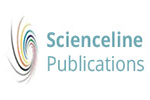(2023) The Role of Newcastle Disease Virus in Cancer Therapy: A Systematic Review. Journal of World's Poultry Research. pp. 373-385. ISSN 2322-455X
|
Text
JWPR13(4),373-385,2023.pdf - Published Version Download (1MB) |
Abstract
Recently, immunotherapy has become a hopeful option for cancer therapy. Taking advantage of pathogens is a well-established method of cancer immunotherapy. It has been shown that the Newcastle disease virus (NDV), an avian virus with oncolytic properties, can be used to treat cancer. This study was designed to offer a comprehensive overview of the role of NDV in cancer treatment, focusing on its attributes, mechanisms of action, preclinical and clinical trials, and future perspectives. A systematic literature review was performed to gather relevant information about NDV in cancer therapy. The inclusion criteria of this study included studies conducted in vitro and in vivo as well as clinical trials to investigate the anti-cancer effects and mechanisms behind the action of NDV. A total of 34 out of 176 academic articles, preclinical studies, clinical trials, and review articles were analyzed to collect key findings. In addition to replicating selectively through invading cancerous cells, NDV has been shown to induce apoptosis in in vivo studies. There is evidence that it can induce apoptosis, induce oncolysis, and modulate immune function in preclinical research. Studies have demonstrated that combining this therapy with chemotherapy, immunotherapies, and targeted therapies provides encouraging results regarding effectiveness and safety in animal models. As a result of NDV�s ability to induce immunogenic cell death, the immune system is activated when it reacts to cancer cells. In addition, NDV infection promotes the recruitment and activation of immune cells, especially cytotoxic T cells, by releasing cytokines and chemokines. This dual mechanism triggers anti-cancer immune responses. An interesting new approach to cancer treatment is based on the selective replication of NDV, which can induce immunogenic cell death in tumor tissues and interfere with oncogenic signaling pathways. Research in preclinical models has yielded valuable information, as well as evidence of the effectiveness and safety of clinical trials. A synergistic effect has been demonstrated when chemotherapy, immunotherapies, and targeted therapies are used in conjunction. © Open Access: This article is licensed under a Creative Commons Attribution 4.0 International License, which permits use, sharing, adaptation, distribution and reproduction in any medium or format, as long as you give appropriate credit to the original author(s) and the source, provide a link to the Creative Commons licence, and indicate if changes were made. The images or other third party material in this article are included in the article�s Creative Commons licence, unless indicated otherwise in a credit line to the material. If material is not included in the article�s Creative Commons licence and your intended use is not permitted by statutory regulation or exceeds the permitted use, you will need to obtain permission directly from the copyright holder. To view a copy of this licence, visit https://creativecommons.org/licenses/by/4.0/.
| Item Type: | Article |
|---|---|
| Keywords: | Cancer; Immune responses; Newcastle disease; Targeted therapy |
| Subjects: | S Agriculture > SF Animal culture |
| Divisions: | Journal of World's Poultry Research (JWPR) |
| Page Range: | pp. 373-385 |
| Journal or Publication Title: | Journal of World's Poultry Research |
| Journal Index: | Pubmed |
| Volume: | 13 |
| Number: | 4 |
| Publisher: | Scienceline Publication, Ltd |
| Identification Number: | https://doi.org/10.36380/jwpr.2023.40 |
| ISSN: | 2322-455X |
| Depositing User: | Dr. Daryoush Babazadeh |
| URI: | http://eprints.science-line.com/id/eprint/931 |
Actions (login required)
 |
View Item |


 Dimensions
Dimensions Dimensions
Dimensions